Book Bag: ‘I Could Have Been More Wrong’ by Kevin McCaffrey; ‘Fugitive from Injustice’ by Robert T. McMaster
|
Published: 03-22-2024 9:58 AM
Modified: 03-25-2024 11:04 AM |
I Could Have Been More Wrong
By Kevin McCaffrey
Four Winds Press
Kevin McCaffrey brings something to his poetry that other poets might consider employing more often: a sense of humor.
In “I Could Have Been More Wrong,” McCaffrey, a South Hadley resident, finds much to laugh at in life, especially its many absurdities (and sometimes himself), in a collection of free verse poems and rhyming verse that, as a publisher’s note puts it, “come out of nowhere to proclaim eccentric half-truths with deceptive simplicity.”
There’s plenty of topical satire as well, as McCaffrey, a former communications director for Mount Holyoke College, takes aim at consumer culture, Facebook, overwrought politics and more.
Consider “Outrage,” which with its sing-song rhymes sums up the theme of so many news stories today:
“There is a town called Outrage— / everyone’s angry there, / always feeling disparaged / and ready with a glare // for all those who have wronged them— / there’ve been so many wrongs— / and each vies to be the victim / aggrieved most of all the throng.”
Another standout is “My Friend Zuckerberg,” an ironic salute to the king of social media who, like Orwell’s Big Brother, is always watching us — something most people don’t seem to care about.
Article continues after...
Yesterday's Most Read Articles
 Police report details grisly crime scene in Greenfield
Police report details grisly crime scene in Greenfield
 Super defers Amherst middle school principal pick to successor; one finalist says decision is retaliation for lawsuit
Super defers Amherst middle school principal pick to successor; one finalist says decision is retaliation for lawsuit
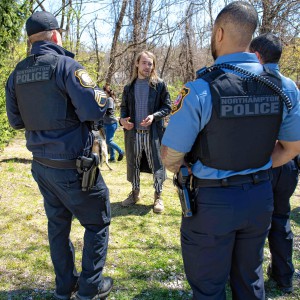 Homeless camp in Northampton ordered to disperse
Homeless camp in Northampton ordered to disperse
 Authorities ID victim in Greenfield slaying
Authorities ID victim in Greenfield slaying
 Haydenville residents resist Greenway trail plan, float alternative design
Haydenville residents resist Greenway trail plan, float alternative design
 Locking up carbon for good: Easthampton inventor’s CO2 removal system turns biomass into biochar
Locking up carbon for good: Easthampton inventor’s CO2 removal system turns biomass into biochar
“He knows what I had for breakfast / and what I had for lunch, / he knows my favorite movie star / it’s more than just a hunch. // How does he know? How does he know? / Have I been overheard? / No, I shared everything myself / with my friend Zuckerberg.”
And friend Z does more than that, McCaffrey notes, by guiding people’s thinking and emotions with stories specially designed “to influence my demographic / to move towards the extreme. / He knows our will is plastic— / We’re just living for a meme.”
How about an appeal to mindless consumption? In “Attention All Shoppers,” customers are told a store will shortly be shuttered and they have limited time to take advantage of a sale to end all sales: “Put to a final test your buying power— / this store will close forever. In one hour.”
It’s also worth noting that the poetry collection’s cover depicts a man who appears to be juggling giant eyeballs.
“I Could Have Been More Wrong” includes short poems such as “Holyoke Range,” a simple ode to the pleasures of those modest hills. And there are longer prose poems like “The Last to Go,” a tale of a woman who survives working in some hellish corporation beset by “lay-offs, budget cuts, / strategic plans, administrators shipped / in by the boatload and then let go—” by developing inner peace.
In an email, McCaffrey, who published a previous collection of unconventional verse, “Laughing Cult,” as well as a sci-fi novel, “Nightmare Therapy,” says he’s aimed with this new volume to offer verses “that strive for an accessibility … that will appeal to general readers.”
He also contributes poems to a number of online forums.
Fugitive from Injustice
By Robert T. McMaster
Unquomonk Press
Over the last several years, Williamsburg writer Robert McMaster turned to an earlier era of regional history for four linked novels known as the “Trolley Day Series,” stories set in early 20th century Holyoke and surrounding towns that explored class struggle, the clash between agriculture and industrialization, and major events such as World War I.
For his newest series of novels, McMaster, a former college biology teacher, has drawn on his Irish roots for inspiration.
The “County Wicklow” mystery series is set in contemporary Ireland, in a picturesque region south of Dublin, marked by the Wicklow Mountains, lakes, a long stretch of coastline, and, for Ireland, a fair amount of tree cover.
The first book in the series, 2023’s “Rose of Glenkerry,” introduced the main characters, including Ciarn “Cary” McGurk, a recent university graduate who’s thinking of moving to London to work in journalism. Instead he returns to his home in the town of Glenkerry to help an old friend, Rosie O’Malley, solve a family mystery that includes the sudden disappearance of Rosie’s mother.
In McMaster’s new book, “Fugitive from Injustice,” Cary and Rosie are now an item, and Cary has remained in Glenkerry to try and revive the small weekly newspaper his late father, Patrick, founded 30 years earlier.
But with a minimal budget, Cary’s not sure how he’s going to make the operation fly without good stories — something beyond routine news — to bring in readers and advertisers.
Then, out for a shoreline run one morning, he finds the body of an unidentified man sprawled in the sand with what looks like a serious head wound. The Garda — Ireland’s national police — are called in, and the initial investigation reveals the man is originally from Syria.
Cary’s got a friend on the force, Del, who on background says Syrian police haven’t been too helpful on the case. Is there a possibility the man had been an opponent of the Syrian government during the country’s prolonged civil war and was murdered?
From there the story unfolds to take up the larger issue of refugees from other war-torn countries such as Ukraine and Afghanistan coming to Ireland and the perils they have faced — as well as the tensions that can rise in small towns with their presence.
In Glenkerry, everyone is buzzing about the dead man, but police are saying almost nothing. So Cary, with Rosie’s help, begins to do some private sleuthing, and the two uncover a web of intrigue that goes back 10 years, stretching from Ireland to the Mideast.
Rosie, meantime, is teaching in the local high school, where she’s caught up in helping a girl who’s being sexually harassed by a male student.
As a counterweight to these darker themes, “Fugitive from Injustice” has another storyline involving the Glenkerry girls’ camogie — Irish “hurling” — team, made up of girls from different countries and and cultures who are united by their passion for the sport.
It’s one way in which McMaster portrays a changing Ireland, including the little town at the center of the novel.
“To the casual visitor, Glenkerry appears frozen in time,” he writes, still the farming center it had been for decades. But change is happening: the local shops now include “a day spa, an espresso stand, and a frozen yogurt vendor,” while huge vacation homes have replaced some old stone farmhouses in the outlying fields and lanes.
In press notes, McMaster says Ireland has taken in many refugees, including more Ukrainians per capita than any other country. And the refugee stories in his novel, he adds, “are based on actual public accounts and they are not always easy to read, but I feel it is important that they be heard.”
Steve Pfarrer can be reached at spfarrer@gazettenet.com.

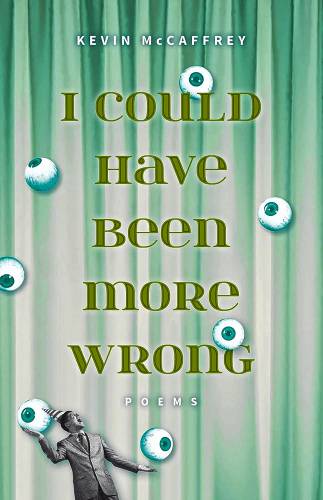
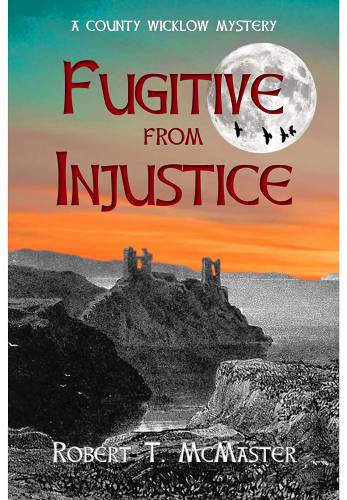
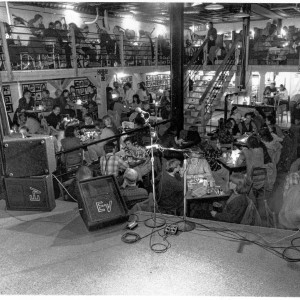 The Iron Horse rides again: The storied Northampton club will reopen at last, May 15
The Iron Horse rides again: The storied Northampton club will reopen at last, May 15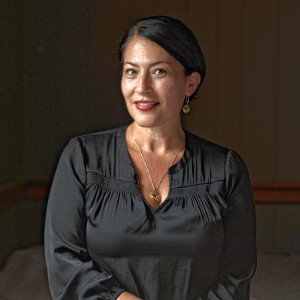 The power of poetry: U.S. Poet Laureate Ada Limón to speak at Smith College
The power of poetry: U.S. Poet Laureate Ada Limón to speak at Smith College Upon Nancy’s Floor: 33 Hawley event celebrates iconic dancers, history, and a new dance floor
Upon Nancy’s Floor: 33 Hawley event celebrates iconic dancers, history, and a new dance floor Embracing both new and old: Da Camera Singers celebrates 50 years in the best way they know how
Embracing both new and old: Da Camera Singers celebrates 50 years in the best way they know how
